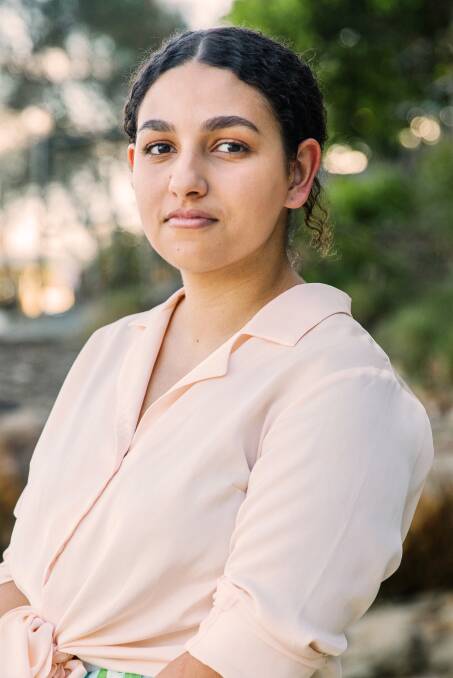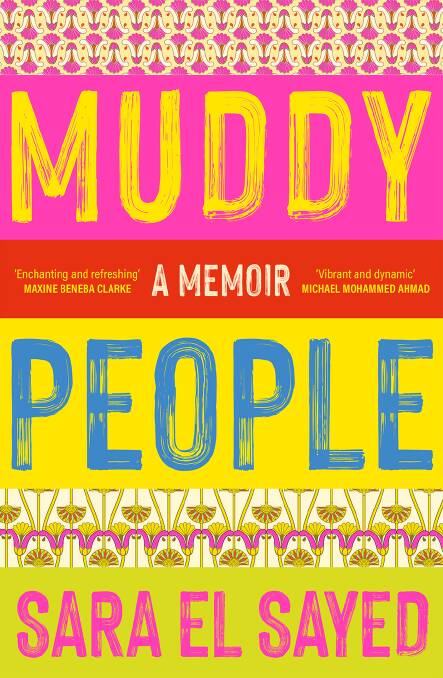
- Muddy People, by Sara el Sayed. Black Inc, $29.99.
"Muddy" is not usually an adjective associated with "people". The word might connote various things (confused, say, dense or risky) but, in Sara el Sayed's memoir, the meaning is often "messy".
Subscribe now for unlimited access.
or signup to continue reading
Messy, muddy domestic life is the single subject of this book. "It's about my family and what we're like on the inside."
Throughout, el Sayed's approach is frank, honest, brisk, verging on bracing.

Her brother, for instance, became a good swimmer because "his nose made for an effective keel". Her parents were each good people, "just not good together".
As for the family's nurturing skills, "when the grass isn't as green as we want, we concrete over it". Her siblings "scream at each other like vultures over roadkill".
El Sayed was born in Alexandria, surely the most gracious and genial junction of Arab and African worlds.
Her mother already possessed an Australian passport, and her young daughter had a Bananas in Pyjamas poster on her bedroom wall long before she arrived in Brisbane.
Much of the early reminiscences concern parental advice: "I mean them telling me to do things and me doing them".
The reader is then treated to an exploration of rules, beginning with those against alcohol (including rum balls, the taste of which had to be removed with a wipe and a gargle).
El Sayed moves on to prohibitions on bikinis (one of many excruciating tales of shame and embarrassment) and on befriending non-Muslim boys.
The point of view is not one of aggrieved complaint about racism, prejudice or discrimination.
Nor is el Sayed writing social commentary. Her focus is a bit too intimately familial for that.
Although Muddy People has important points to teach us about assimilation, diversity and integration, its author neither lectures nor condescends.
She writes simply and clearly, focused on anecdotes which explain judgments, emotions which illuminate experience.
El Sayed maintains that her book is "creative non-fiction", based on "often fragmentary and fallible" memory.
That disclaimer under-states her skillful selection of stories which matter, interspersed with whimsical reminiscences about 26 jars of minced garlic in a dying man's fridge, or her arm hair.
Muddy People is quite beguiling, with el Sayed's calm, wry, amused voice agreeably in evidence on every page.
The story is certainly not a happy-go-lucky tale of growth, harmony and maturity. This is rough-hewn, hard-won growing up.

